| » BROJ 57 |
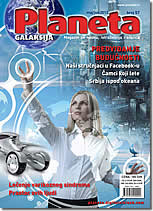 |
Godina X
Mart - April 2013.
|
|
| » Glavni naslovi |
SUMMARY
Summary
The feature of this issue:
Forecasting the Future |
|
 |
The possible deveLopments over the next couple of decades has been the subject of numerous forecasts by individuals and debates at scienti-fic gatherings. Many possible future outcomes are contemplated, starting from new technical inventions and the human presence in space, through education and changes in family relations, to artificial intelligence and new enterprises. As for the time per-spective, people seem to be less interesting about possible events over the next century or two, and much more are interested in what the majority of those who are presently living see as „biologically achievable" - over the next couple of decades.
This issue presents articles regar-ding the forecasts of developments in the field of robotics and energy, tran-sportation and conquering the space, population developments and artificial intelligence. A separate article is dedicated to forecasts stated in a paper by Nikola Tesla, published in the „Liberty" of February 1937, about how he sees the time from 2010 to 2035. „In the year 2100 life developments will be fully controlled by science", states the article, implying that this will be so in the production of food and energy and also in preventing wars and crime. |
IT Experts The Best Recruit the Best |
|
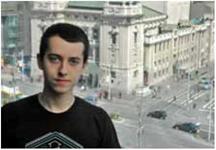 |
Out of eight Serbian experts currently working for the HQ of Facebook, as many as seven are present or former students of the Computer Science Faculty of Belgrade. Nenad Boži-darević, who has spent three months on probation in this company, speaks of studying at the faculty and conditi-ons for employment in such a globally famous company. He is now attending the final year of studies, and his contact with Facebook resulted after the Bubble Cup team competition in solving algorithm problems organised for secondary and university students in Serbia by the Belgrade Microsoft development centre. Božidarević and his colleagues won the fourth place, which was also noticed by represen-tatives of Facebook in charge of talent hunting. A year later he was invited to come to Faceook. |
Space Conquest Asteroids - mines |
|
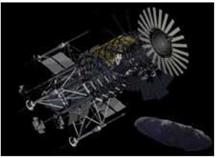 |
The idea of using resources from asteroids and their on the spot proce-ssing has featured in SF visions for a whole century. Possible settlements on asteroids and planets could survive and further develop only if they would use local sources of materials and energy.
The composition of asteroids is well known thanks to testing of materials originating from them, and it is thus possible to plan the use of substances making them up which are not abun-dant on the Earth. High prices of pre-cious metals could justify missions of robotised spaceships to asteroids, the extraction and transport back to Earth of such materials |
Science as Life A Century with Asteroids |
|
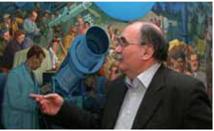 |
The Astronomical Society of Serbia is viewed with respect around the world and its astronomers have for a long time been participating in research carried out by the world's most distinguished and prestigious institutes. The credit for such a reputation of Serbia's astronomy very much goes to Dr Zoran Knežević (1949), a scientific associate and manager of the Astronomical Observatory of Belgrade.
Knežević has participated in the development of the above observatory and astronomy in general; he is a scientist and organizer of research, project manager and associate in numerous international programs, an official in expert bodies of the In-ternational Astronomical Union. His research includes the study of chaos in the movement of asteroids, deve-loping theories of movement of small bodies in the Solar system, analysis of reliability of theories and their im-plementation in the observation program „Pan Stars". By the decision of the International Astronomical Union, the asteroid 3900 was named after Knežević. |
Mathematics Symmetry Around Us |
|
 |
Regularities and relations studies by mathematics are ever-present in nature. Some can be described in numbers, some not. Examples inclu-de symmetrical patterns on flowers and furs, planet orbits, distribution of atoms and molecules. Symmetry the-ory is part of geometry as symmetry reflects bodies in planes. There are 17 ways to reflect a certain shape. The article speaks of the symmetry of ani-mal furs, flowers, circles, squares, the human face, etc. |
Medicine Treatment of haemorrhoids by THD method |
|
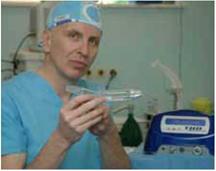 |
It is estimated that the broadly spread disease of haemorrhoids affects as many as 80 percent of people of middle and advanced age. Although it is not classified among the more serious diseases, this disease disrupts the daily life by well known symptoms including pain, itching, bleeding and prolapse. Conventional surgical treatment im-plies a number of unpleasant effects and strong post-operative pain.
Dr Dejan Jovanović, proctology surgeon in the Belgrade General Hospi-tal Bel Medic, which has introduced a new method of treatment of this disease, is presenting the advantages of the transanal haemorrhoidal dearterialisation (THD) as a very mildly invasive technique - without surgical cuts - enabling quick recovery and resumption of daily activities. |
Medicine Treatment of veins by RF waves |
|
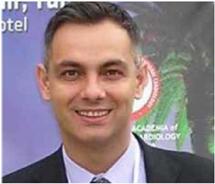 |
Permanent removal of enlarged veins is possibly only surgically. Greatest comfort and best results for patients are achieved by a least invasive procedure using radio-frequent waves (RF) as it enables a quick recovery and resuming normal daily activities with the best aesthetic outcome. This is the topic presented for „Planeta" by Lieutenant-Colonel of the Serbian Army, assistant lecturer, Ivan Marjanović, Ph.D., head of department for vascular and endovascular surgery of the Military Medical Academy and consultant of the Belgrade General Hospital Bel Medic.
|
Medicine Specific blood tests |
|
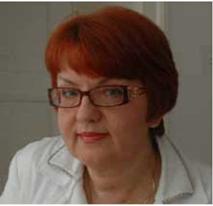 |
Key laboratory blood tests are an integral part of a systemic medical exa-mination and part of initial diagnostic examinations in almost 90 percent of patients. A full blood test, including the results for sedimentation, glucose and lipids, are parameters enabling regular health checks even when the-re are no symptoms present. Tumour markers, hormone status, anti-body detection - these are some of the many specific blood tests targeted at diagnosing certain diseases. Details of this broad topic are presented by Nada Pevčević, M. Sc. M.D., specialist of medical biochemistry of the Belgrade General Hospital Bel Medic. |
Ornithology Birds in Cities |
|
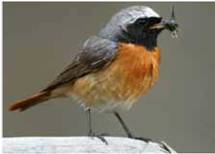 |
Serbia is house to about 360 bird species. Some of these are used to living in cities, and they choose peaceful habitats rich in greenery and water. As we move from the centre to the periphery, the number of birds increases. A slight deviation from this is the centre of Belgrade, located very close to the confluence of two rivers and a number of sand, woods covered islands.
The influence of people is reflected, for instance, in the singing of some wild birds. Thus, the singing of the tit is in somewhat higher tones because the lower ones are not audible due to the high noise levels, while some other species are not able to adjust -due to the noise they tweet less. These are some of the topics covered in this article on most widely present birds in towns and cities of Serbia. |
Geology Serbia under the Ocean |
|
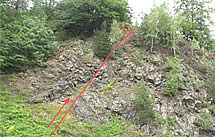 |
The Vardar zone is a remnant of the lost ocean Paratetis, which existed from the middle of trias (around 200 million years ago) until the chalk-and possibly longer (around 60 million years ago). Geologysts discuss the existence of one or a number of oceans. The fact that Serbia once was un-der the ocean is indicated by ofiolites, rocks which make up the ocean crust and the upper litosphere. Two young associates of the Mining-Geological Faculty of Belgrade are talking about the research which is currently under way using images from satellite Landsat 7. |
Museums History of technology in an abandoned power plant |
|
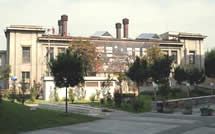 |
The Museum of Science and Technology in Belgrade was founded in 1989. Until 2006 it was located in the buil-ding of the Serbian Academy of Scien-ces and Arts and since then it is located in a building of historical value, which once used to be a power gene-rating plant in Dorćol, the location of the first power plant in Serbia dating from 1893.
The Museum houses about six thou-sand artefacts making up the history of technology in Serbia, some of which are part of the standing exhibition. The Museum also has archives and a library, numerous documents and vi-deo material, and since recently this is accessible to all visitors. |
|
|
|
| » Pratite nas |
 |
 |
|
» Prijatelji Planete |
| » ON LINE PRODAJA |
|
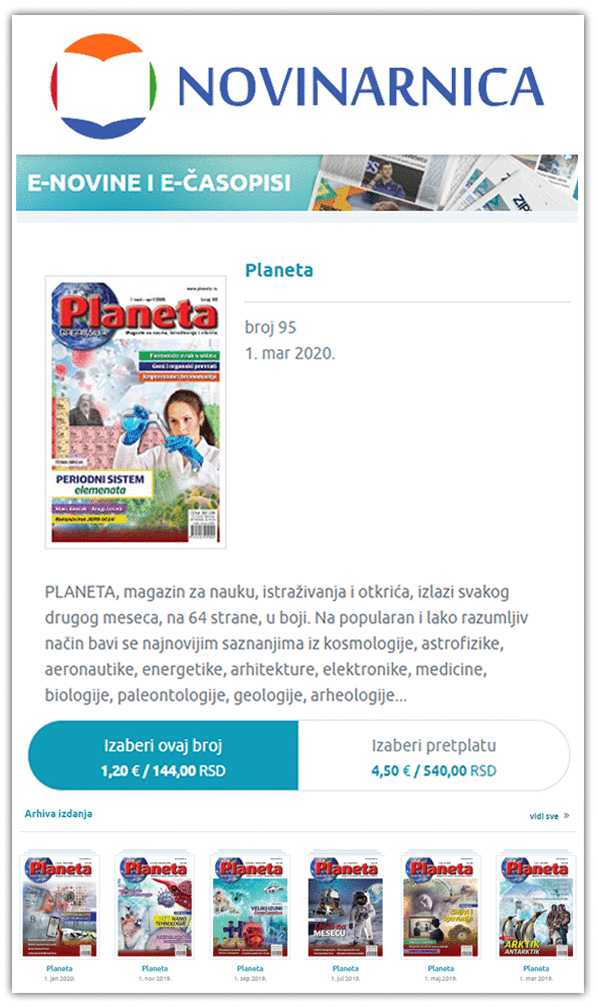
6 digitalnih izdanja:
5,40 EUR/540,00 RSD
Uštedite čitajući digitalna izdanja 50%
Samo ovo izdanje:
1,44 EUR/144,00 RSD
Uštedite čitajući digitalno izdanje 20%
www.novinarnica.net
|
|
|

